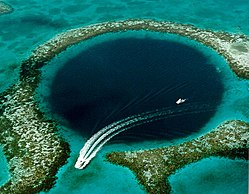Underwater:1aopkbzyz-E= Oyster

Underwater:1aopkbzyz-E= Oyster, often overlooked in broader environmental discussions, serve as vital indicators of marine ecosystem health. Their unique filtering ability not only enhances water quality but also supports diverse marine life through habitat provision. Furthermore, the economic implications of oyster aquaculture are significant, contributing to local communities and food security. However, the challenges facing oyster populations due to environmental changes and overharvesting raise critical questions about sustainability. What strategies might ensure the continued ecological and economic benefits of these bivalves in the face of such pressures?
Oysters: An Overview
Oysters are a diverse group of bivalve mollusks belonging to the family Ostreidae, with over 200 species identified across the world. Their anatomy features a hard shell, soft body, and gills, which facilitate filter feeding. Oysters inhabit various marine environments, including estuaries and reefs, where they contribute to their ecosystems. Understanding oyster anatomy and habitats is crucial for appreciating their ecological roles and conservation efforts.
Read Also: Underwater:4k0xaie6h5i= Titanic Museum
Ecological Importance of Underwater:1aopkbzyz-E= Oyster
The ecological significance of oysters extends far beyond their role as a food source; they are vital contributors to marine ecosystems. Through filter feeding, oysters improve water quality by removing pollutants and excess nutrients, fostering a healthier environment. Additionally, their shells provide habitat creation for various marine species, enhancing biodiversity and promoting ecosystem stability. Thus, oysters play an indispensable role in maintaining ecological balance.

Aquaculture and Economy
Aquaculture has emerged as a significant sector in the global economy, with oysters representing a key component of this industry. Oyster farming contributes substantially to local economies by generating jobs, supporting coastal communities, and providing sustainable food sources. The economic benefits of oyster aquaculture extend beyond direct revenue; they also foster ecosystem health and enhance biodiversity, creating a resilient economic framework for future generations.
Read Also: Underwater:3u1qizs_9ra= Wallpaper:Ktzombhaage= Ocean
Conservation Efforts
Amid growing concerns over declining oyster populations and their critical role in marine ecosystems, conservation efforts have become increasingly vital. Initiatives focused on restoring oyster habitats aim to mitigate pollution impacts that threaten their survival. These projects not only enhance biodiversity but also improve water quality, showcasing the essential interconnectedness of ecosystem health and the freedom to sustain a thriving marine environment.
Conclusion
In summary, Underwater:1aopkbzyz-E= Oyster serve as vital components of marine ecosystems through their filtering capabilities, which enhance water quality and promote biodiversity. Their contributions to aquaculture bolster local economies and food security. However, the decline of oyster populations necessitates urgent conservation efforts. Without effective protection, can future generations witness the vibrant underwater habitats that these remarkable bivalves once sustained? The preservation of oyster populations is essential for maintaining ecological balance and supporting resilient marine environments.




